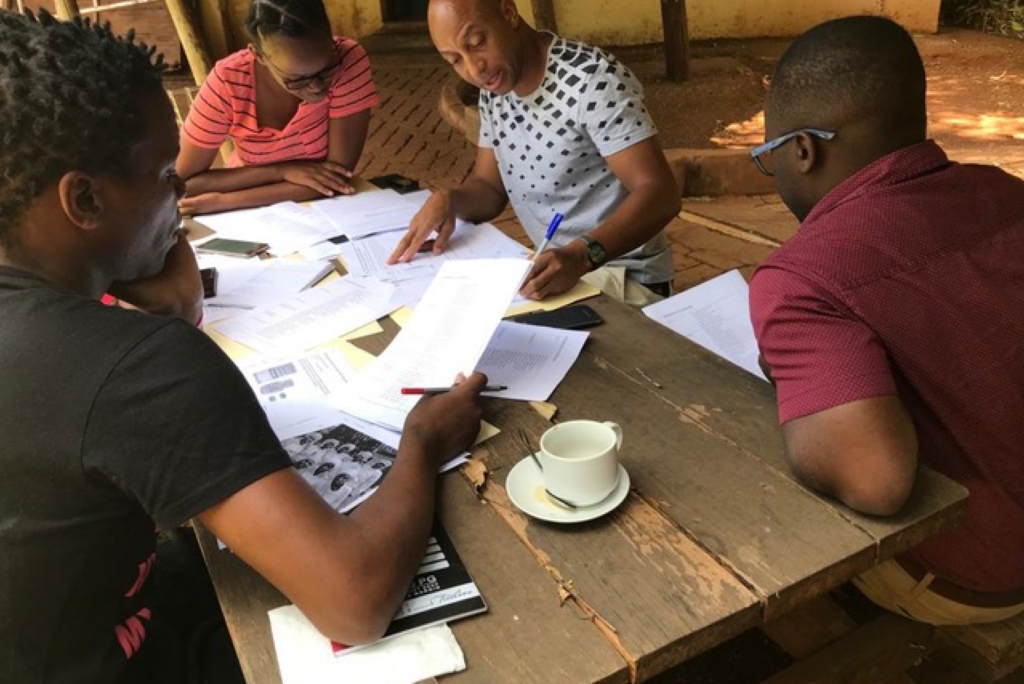factsheet
Project
Media Science Cafés
Translating science and shaping the agenda for health media

Media Science Cafés link journalists with researchers, civil society, policy makers and regulators for accurate and insightful reporting on HIV, COVID and global health equity.
Connecting Media with Health Experts
Generating compelling and nuanced media stories on health and science depends on strong connections between researchers and providers, journalists reporting the story, and civil society and community members who have critical perspectives to share.
Researchers need skills to explain science in plain language and be open to questions. Civil society and affected communities are also a crucial component to strong news coverage, providing advocacy perspectives that capture the full impact of a given issue.
About the Media Science Café Project
Since 2012, AVAC has worked to support health journalist associations in East and Southern Africa to strengthen the capacity of journalists to report on HIV prevention research. In 2020, AVAC expanded this work to include COVID science. Through the Media Science Café Program, AVAC partners with health media associations in Kenya, Malawi, Tanzania, Uganda, Zambia and Zimbabwe to bring journalists together with researchers, implementers, civil society, policy makers, regulators and policy makers to build relationships that will foster accurate reporting of HIV, COVID and other science or health stories in those countries.
How Does It Work?
The monthly cafés are structured as informal meetings with 20-30 journalists and expert speakers. Experts in the field gather to present and discuss timely health topics. Read the Rockefeller Foundation’s case study about the Media Science Café Project, “Decoding Scientific Research to Support Public Health in Africa.”
Experience with COVID-19
In early 2020, as the COVID-19 pandemic became the dominant news story around the globe, media café partners—with the support of AVAC and Internews—turned to helping journalists understand the pandemic and the science behind COVID-19 research.
The Cafés quickly moved from in-person meetings to Zoom cafés and implemented “Cross-Border Cafés,” which brought together journalists and experts from the four café countries and other African countries for updates on emerging issues, including the impact of COVID-19 on HIV research, COVID-19 treatment and vaccine trials in Africa, and clinical trial results for both COVID-19 vaccines and therapeutics.
As the world confronted COVID-19, AVAC and the Café partners also grappled with an “infodemic”, and it’s been hard for journalists to sieve through an overwhelming volume of information at breakneck speed to write timely and accurate stories. With the support of AVAC, the Media Café conveners helped journalists differentiate fake, over-hyped information from accurate, verifiable information derived from trustworthy sources and linked them to COVID-19 experts in their countries. Visit here for our curated list of resources to help journalists find high quality, understandable information.
Impact
The media café program has:
- Provided a platform for engagement and networking within and across countries and laid the groundwork for ongoing dialogue between key journalists and scientists, implementers, advocates, regulators and policy makers on scientific topics related to HIV, sexual reproductive health and rights (SRHR), and more recently COVID-19.
- Updated journalists on emerging issues in biomedical HIV prevention research and implementation, SRHR and COVID-19.
- Helped journalists to generate story ideas, foster peer critiques of their work and engage in thought provoking debate.
- Prepared journalists to report on prevention trial research and results; grapple with complicated science such as HIV cure research and HIV treatment; better understand domestic and donor funding for HIV programs; recognize human rights issues for key populations; and, more recently, understand COVID vaccine science and the nuances of vaccine hesitancy.
- Been supported by topic-specific regional trainings in East and Southern Africa; “help desk” support for reporters covering key HIV conferences; ongoing support to health journalists from veteran science journalists through a partnership with Internews—an organization focused on building the capacity of media professionals, human rights activists, and information entrepreneurs across the globe.
Contact
If you are a journalist who wants to be connected to the café program or receive information about training and other opportunities, please contact us at [email protected].